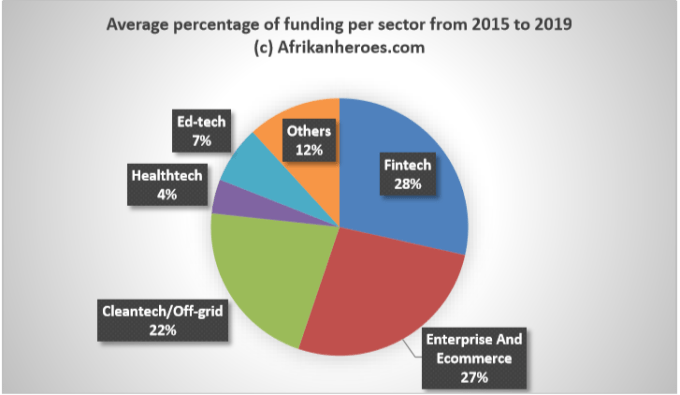Investors are turning their eyes towards e-commerce and healthcare more now. Almost three years after pivoting from software company, Mesozi, founder Tesh Mbaabu and his team have secured funding for the fall-out of the pivot — the Nairobi-based retail-tech startup MarketForce. With its new US$350,000 in seed fundraise, MarketForce would be looking to consolidate on its progress so far as well as put new touches to its product to grow new revenue streams.

“Over the last few months, we have been working on the next phase of the business, a retail ordering feature that will enable shopkeepers to source, order and pay for stock at anytime via interactive SMS and mobile app, and get it delivered directly to their store by the nearest wholesaler or distributor, within hours, saving them time and money that they would have had to spend if they closed shop and went out to look for stock,’’ Mbaabu said.
Here Is What You Need To Know
- The new fundraise came from the ViKtoria Business Angels Network (VBAN), and has been directed to Mesozi, MarketForce’s holding company from which it pivoted to its present state.
- MarketForce said it had seen good momentum of late and would use the seed funding to build out its product to unlock new revenue streams while expanding its team’s capacity across East Africa.
“2020 has been an incredibly important year for us. After two bootstrapped years of R&D, building the product, and testing across various industries, we are ready to take in external capital,” said Mbaabu.
“Initial customers love our product, so we are ready to aggressively grow our customer base as we make an impact in the expansive African retail and distribution economy. We are focused on supporting our clients to sell more during this difficult time and plan to raise additional capital within the year to support our growth efforts.”
Why The Investor Invested
Jason Musyoka, manager at VBAN, said he believed the highly fragmented African retail and distribution value chain was primed for disruption.
“The analytics from such platforms will be instrumental in distribution optimization hence bringing goods to as close as possible to the highly-expectant, globally-aware African consumer market. The team at Mesozi has proven to be capable of delivering the product and eager to exploit the opportunities the sector presents,” he said.
Read also : Kenya Apologizes to Doctors for Importing “substandard” PPEs, Test Runs Herbal Drug
Since 2011, the ViKtoria team has been actively supporting the growth of entrepreneurial ecosystems in various sectors in East Africa.
“We connect angel investors with innovative companies that are charting new paths and tapping into large market opportunities to meet basic needs such as entertainment, transport and infrastructure. Angel investors not only inject capital needed to test business models and early stage growth, but they also provide mentorship, sector knowledge and experience, business acumen and access to networks,’’ ViKtoria states.
Read also : Kenya’s Small Businesses To Get Subsidized Loans From Banks By July
For startups in East Africa looking to pitch to it, ViKtoria usually expects that they should:
- Be post-prototype and post-first revenue.
- Have a founding team with sector expertise as well as technical and business know-how.
If you are the founder of a start-up seeking an opportunity to acquire capital please contact them.

A Look At What Startup MarketForce Does
MarketForce leverages mobile devices by enabling field agents to record all customer interactions as they happen in the field, and then aggregates this data and presents it through live web dashboards.
“Through analyzing the orders being placed across thousands of retailers and sales agents on MarketForce in real-time, we are able to visualize this data and tell the manufacturer and distributors who is buying their product, when they are buying it, where they are buying it, at what price, and what they’re buying it in conjunction with; enabling them to tailor their marketing efforts and promotions based on real-time market trends and consumer purchasing habits,” Mbaabu said.
Read also: Centurion Plus launches a full-suite Tax and Investment Service for Africa
Although the startup operates from Nairobi, it also has procured paying customers in Kenya, Uganda and Tanzania, said Mbaabu.
“Over the last 18 months, we have built a functional product, and have on boarded over 45,000 informal retail outlets, 25 consumer goods and service companies, with over 4,200 sales agents, who have processed over 85,000 transactions, worth over 155 Million USD through our platform,” Mbaabu said. “We have already begun to set up operations in Uganda and intend to do the same in Tanzania next year(2020), before scaling out to more emerging markets that face this pressing challenges over the next couple of years.”
Charles Rapulu Udoh

Charles Rapulu Udoh is a Lagos-based lawyer who has advised startups across Africa on issues such as startup funding (Venture Capital, Debt financing, private equity, angel investing etc), taxation, strategies, etc. He also has special focus on the protection of business or brands’ intellectual property rights ( such as trademark, patent or design) across Africa and other foreign jurisdictions.
He is well versed on issues of ESG (sustainability), media and entertainment law, corporate finance and governance.
He is also an award-winning writer
